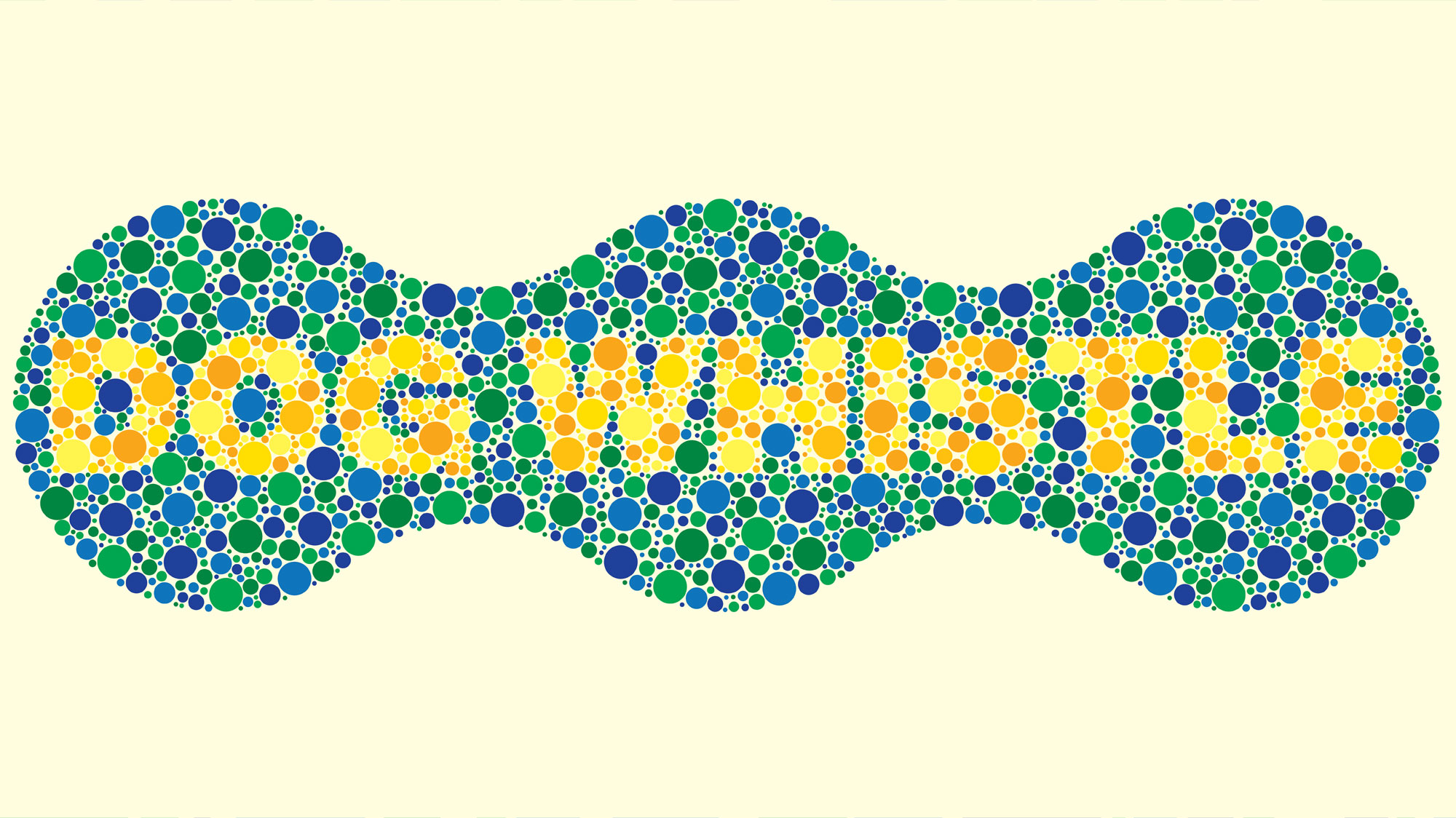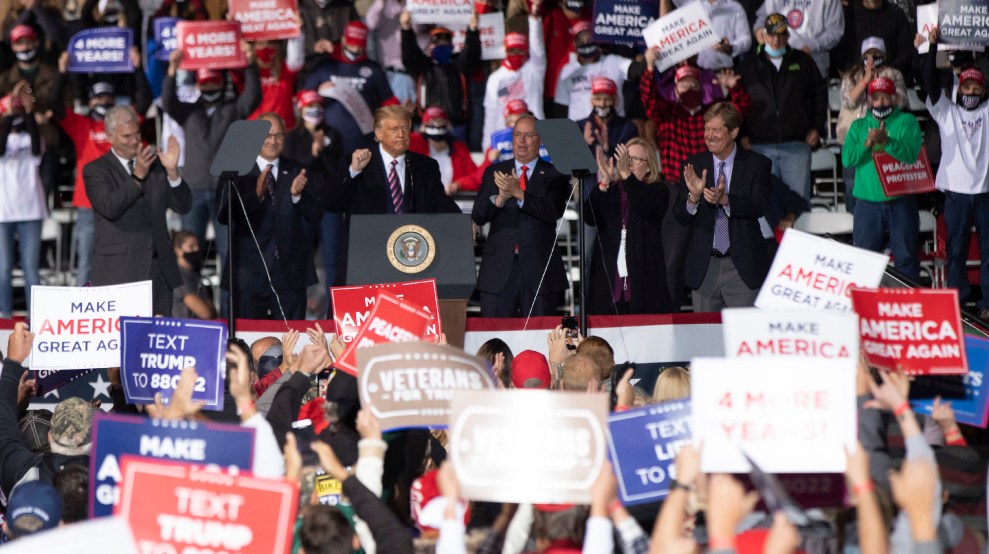Republican strategist Lee Atwater is the godfather of the modern political dog whistle. He didn’t go around calling it that—I can’t actually find any evidence that he even used the term—but in a 1981 interview about how the GOP won the South, Atwater offered a concise description.
“By 1968 you can’t say ‘[n-word]’—that hurts you, [it] backfires, so you say stuff like, uh, ‘forced busing,’ ‘states’ rights,’” Atwater explained. “And you’re getting so abstract. Now you’re talking about ‘cutting taxes.’”
Atwater was speaking anonymously to a political scientist from his perch as a staffer in Ronald Reagan’s White House. He was also telling on himself. He got his start working for the arch-segregationist Strom Thurmond. Later, as a campaign manager for George H.W. Bush, he would push the Willie Horton ad, which tied Democratic presidential nominee Michael Dukakis to a Black man who committed multiple violent crimes while out on furlough from prison. On the surface, it was just a factual criticism about a weekend-release program. On a different frequency, it was screaming at white voters about a racist trope. Plausible deniability was crucial. Atwater told reporters that he at first hadn’t known Horton was Black.
The Horton ad, and the campaign manager behind it, captured something essential about the past and future of the Republican party. Over the last half century, Republican politicians and ad-makers have repackaged and sold white reactionary politics—on education, public services, housing, immigration, and crime—with an evolving set of euphemisms and signifiers. They learned to suggest what they should not say, without tripping the censors of the largely white political press. They learned to “dog whistle.”
For a long time, the term meant something different—it was shorthand for the incomprehensible. The term played on its literal meaning: a particularly high frequency most humans couldn’t hear. Al Gore’s tax plan was described as a dog-whistle because voters wouldn’t understand it. Barney the Purple Dinosaur, who kids loved but left adults baffled, communicated via dog whistle. If someone in the 1990s referred to “the human dog whistle,” they meant Mariah Carey, not Pat Buchanan.
Outside of political polling (and weirdly, Australia), the term’s modern use did not gain popularity until the second Bush’s presidency. At the time, liberal despair was fusing with a sort of evil genius theory of politics. Democrats were obsessed with unlocking the secrets of political framing. They attributed Republicans’ success to the weaponization of the same—with Karl Rove playing the role of “Bush’s Brain.” It was around this time that Atwater’s description of “coded” speech, now de-anonymized and taken out of archives and to the op-ed pages, started getting passed around like samizdat.
With Sherlockian fervor, commenters wondered if Bush was winking at evangelical voters when he referred to a “wonder-working power,” or if his reference to Dred Scott sent a message to anti-abortion activists about overturning precedent. This search for subtext often made things more complicated, and subtle, than they were. Plenty of people who lack gravitas borrow some from the pulpit. And you didn’t need a decoder ring to know where Republicans stood on Roe.
Still, there was—and is—an artfulness to calling out “dog whistling” when done right; it puts a name to a particularly cynical sleight of hand. It was during the rise and presidency of Barack Obama that this detective “dog whistle” usage exploded and took on its final form. According to LexisNexis, references began to spike during the 2008 campaign. As opponents tried to slow Obama down, to weaponize Obama’s race and upbringing while denying that they were doing either, they found other ways to spell it out. Former Democratic strategist Mark Penn saying Obama had a “limited” connection to “basic American values and culture”? Dog whistling. Newt Gingrich referring to Obama as “the food stamp president”? Tweet tweet.
In 2012, the historian Rick Perlstein published the full Atwater audio at a time when the strategist’s words felt especially prophetic. You couldn’t listen to AM radio or spend very long on the campaign trail without hearing one goon after another dance up to the line. These people pronounced omnibus with a hard R.
But emphasizing code words also created an artifice of detachment. MSNBC’s Chris Matthews complained that the Clinton campaign was “sending out dog-whistle signals” to “bad people” about Obama. Dog whistling was invariably a tool of people who were presumed to “know better.” The search for hidden messages often let politicians off easy, by disembodying the message from the messenger—as if these people were merely renting, not owning, the words.
During the Trump era, liberals searched obsessively for signs in invisible ink, and it led them to some pretty desperate places. It’s how people ended up accusing a Jeopardy! contestant of making a white supremacist hand gesture. Or accusing a lawyer at a Supreme Court confirmation hearing of making a white supremacist hand gesture. Or accusing a bunch of cadets at a football game of making a white supremacist hand gesture.
Such sleuthing missed a major tonal shift in conservative politics in recent years. Perlstein, whose books on the making of the modern right are an essential guide, argued in 2017 that Trump had swapped the dog-whistle style for “train-whistle conservatism, in which you are allowed to talk about very racist ideas in quite flagrant ways.”
Our former president was the least subtle man in American life. The point of his rhetoric wasn’t to see what he could get away with; it was to be deliberately transgressive—to be seen as defiantly saying what others were too timid to, and to get other people mad at him while he did it. Trump, we were told over and over again, said “the quiet part out loud.” He was “a modern-day George Wallace”—according to Wallace’s own adviser. To be a MAGA Republican is to be both bigoted and proud to be called a bigot.
This should be clarifying. There was no too-cute play for plausible deniability; Trump read aloud from both Atwater’s script and Atwater’s director’s notes, and in doing so broke down any enduring illusion among people who follow or write about politics that the two could be separated. Our politicians aren’t dog-whistling racism to win racist votes in a calculated game. They’re just racist. And realizing that is for the best. After all, the euphemisms politicians use are never just euphemisms. When racist white people talk about “the schools” or “the neighborhood,” those aren’t stand-ins for something deeper and more nefarious: Those are the deeper and more nefarious things, the load-bearing pillars of structural racism. This speech isn’t coded so much as it’s loaded.
The allure of the “dog whistle” is that political rhetoric is a mysterious field filled with hidden messages. But most of this stuff isn’t secret. So maybe just call it what it is; after all, you heard it too.














